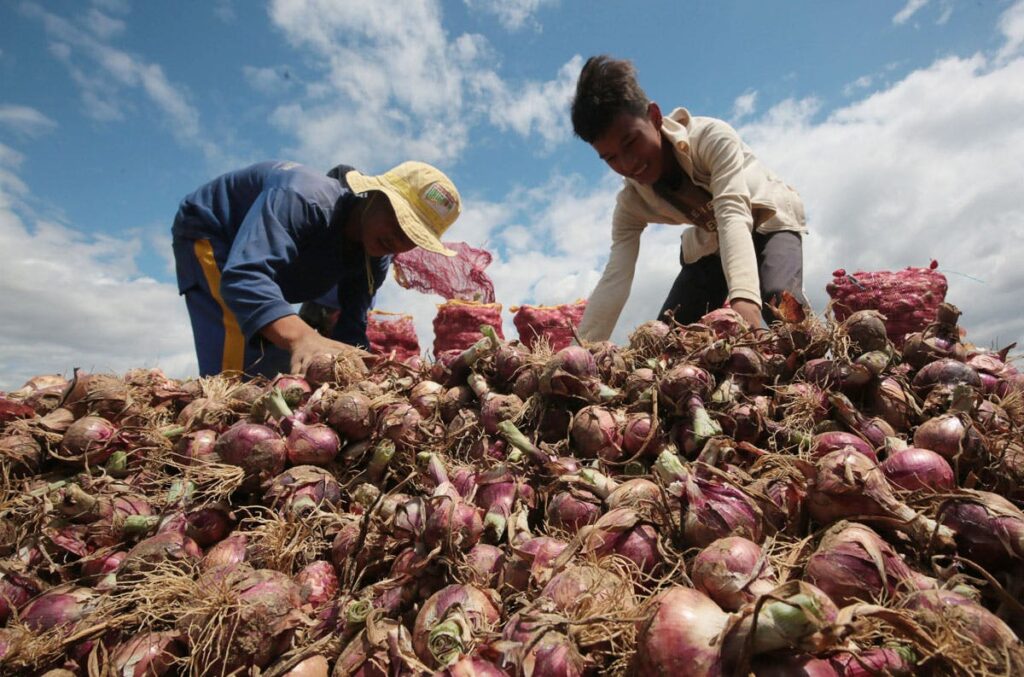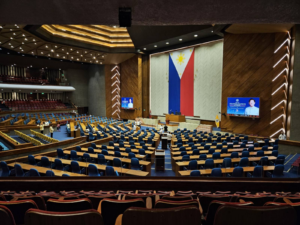
MANILA — Farmers’ group Samahang Industriya ng Agrikultura yesterday questioned the Department of Agriculture (DA) decision to delay the enforcement of a suggested retail price (SRP) scheme for onions – P150 per kilo for the red bulbs and P140 for the white variety – as an attempt to bring market prices down.
Jayson Cainglet, the group’s executive director, told The STAR in an interview that there may be a bigger reason for this latest move.
“Are they protecting the cartel? It’s very unfortunate. What’s the bigger reason for postponing or delaying it?” Cainglet said in reaction to the announcement that DA Senior Undersecretary Domingo Panganiban did not sign the draft order on the SRP for onions.
He noted that during a meeting on March 19, everybody agreed to implement the P150 SRP for red onions and P140 for white onions.
“This means that the DA officials are not sure of the power of the agency. They asked for everybody’s cooperation, everybody cooperated, and now, they are dilly-dallying,” Cainglet said.
He claimed that days after the announcement of the decision to impose an SRP, the retail prices of onions already went down in different Metro Manila markets.
“Even the cold storage operators, they are now selling at P90 to P100 (per kilo wholesale price) for white onions… It is not the problem on SRP, it’s the implementation,” Cainglet said, noting that the imposition of an SRP would lessen the pressure on the need to import onions to address the high prices of the bulbs.
He argued that the DA has a unit to ensure compliance once the SRP is imposed.
“The DA inspectorate under Assistant Secretary James Layug has commitment to go after those who will not comply. The local government units (LGUs) are also awaiting the SRP so that they can also move. The local monitoring council cannot move because there is no SRP,” he pointed out.
According to Cainglet, under Republic Act 7581 or The Price Act, those who will fail to follow the SRP can be charged with profiteering and price manipulation.
“The Price Act is clear that those who violate the cost structure can be charged with profiteering. The whole industry was involved in the cost structure, from producers, traders, cold storage operators, wholesalers and retailers. That is why the P150 SRP is not impossible. In fact, the profit is more than enough as the farmgate price only ranged between P50 and P70 during harvest,” Cainglet noted.
Cainglet said that only profiteers would benefit from the delay in implementation of the SRP. “The more you delay, the more you give opportunity to the profiteers to profit more.”
The SRP was supposed to take effect last Monday after a consensus was reached during a meeting with various stakeholders on May 19. The consultation was attended by DA officials, onion farmers, farmers’ groups, wholesalers, traders and retailers.
DA spokesman Rex Estoperez has admitted that Panganiban took into consideration the zero compliance on the previous SRP imposed on the bulbs.
The DA implemented a P250 per kilo SRP in December 2022 but the price of onions skyrocketed to P720 per kilo amid the shortage in supply. In February 2023, the agency also imposed a P125 SRP on imported onions and failed to get compliance from traders and retailers.
Days after the announcement on the implementation of P150 SRP for red onions, the retail prices of the bulbs started to go down as based on monitoring of the DA on Monday, only the Marikina Public Market sold as high as P200 per kilo of onions.
The retail prices of onions in Metro Manila markets – particularly at New Las Piñas; Guadalupe Public Market in Makati City; San Andres Market, Quinta Market and Pritil Market in Manila; Pamilihang Lungsod ng Muntinlupa; Pasay City Market; Pasig City Mega Market; Commonwealth Market, Muñoz Market and Mega Q-Mart in Quezon City; and Malabon Central Market – ranged between P150 and P190 per kilo.















